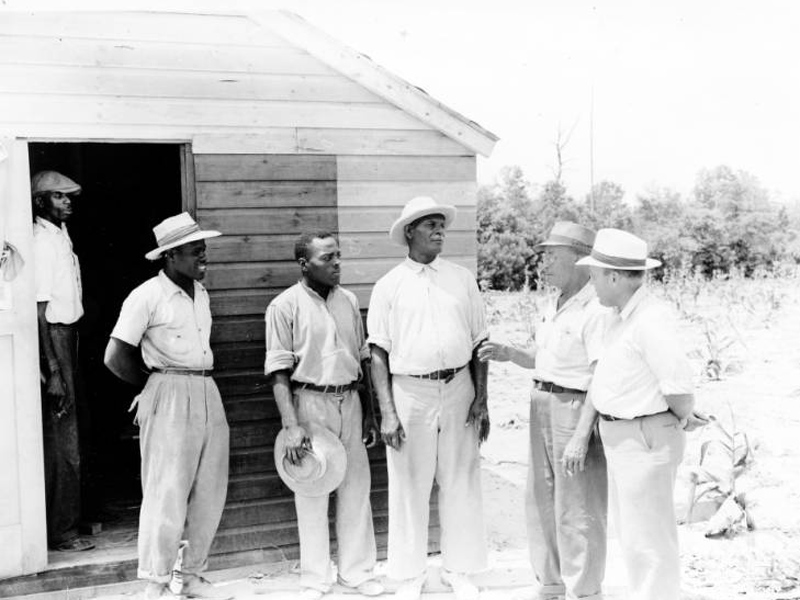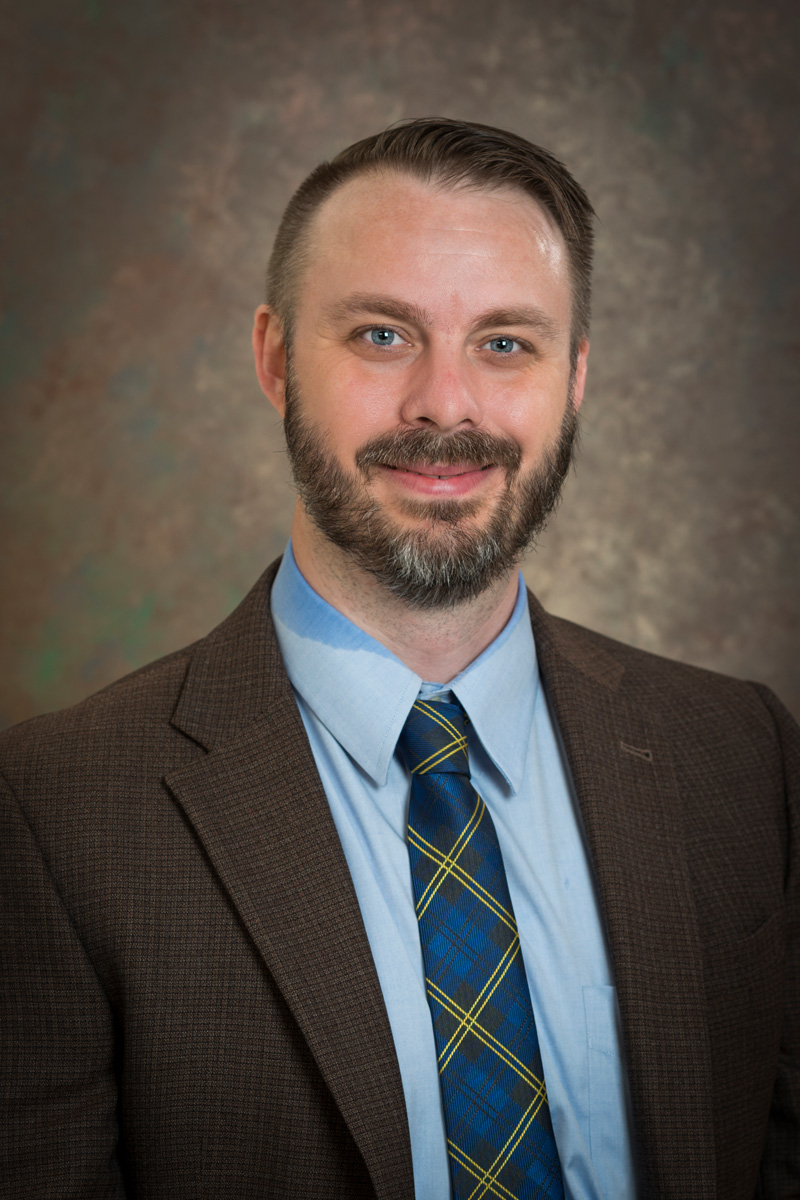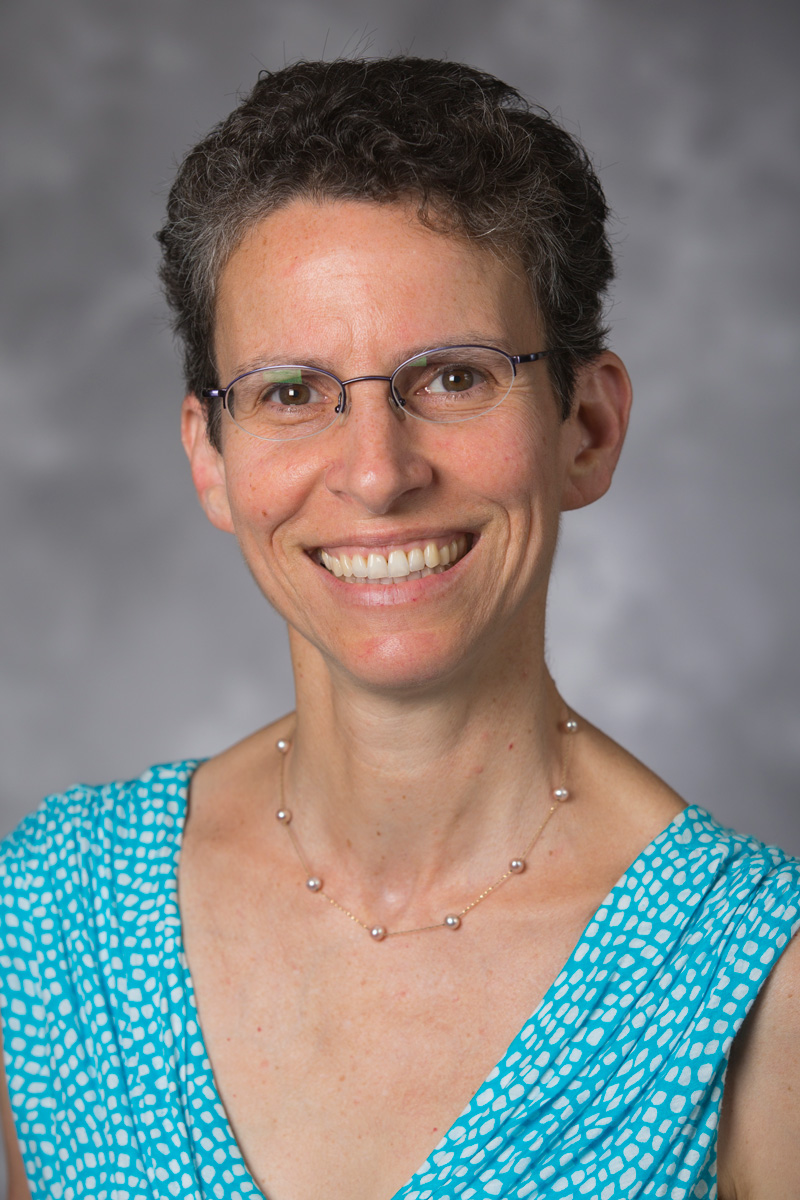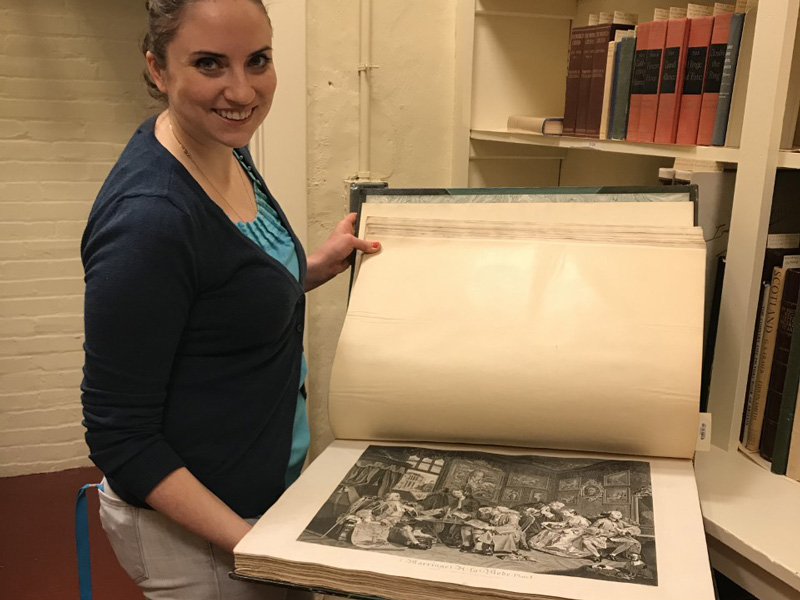


Examining race in Delaware
Photo courtesy of Annie Thomas-Bubel and Delaware Public Archives September 28, 2020
Students conduct summer research as UD Antiracism Initiative begins
Seven students at the University of Delaware spent the summer conducting research on a variety of topics related to the history of systemic racism and social justice in Delaware, a project that marks the first step in what is expected to be a long-term, interdisciplinary UD Antiracism Initiative to explore these issues in the state and at the University.
Katheryn Lawson, a doctoral student in the Department of History, helped to mentor six undergraduate students, while also conducting her own research. Four of the undergraduates were UD students, supported as Summer Scholars through the University’s Undergraduate Research Program, and two were students at Rutgers and Temple universities, who joined the summer program through the Graduate College’s Undergraduate Research Scholars Program.

“Our original plan for the group had everyone working together to survey physical archives, but the pandemic made that impractical,” said Dael Norwood, assistant professor of history and the faculty adviser for the summer research. “So, we shifted a bit, and [instead] each student pursued an individual research project under the broad umbrella of ‘Delaware and Racial Inequality,’ using accessible online resources.
“The students are all very enthusiastic, and they chose an exciting range of topics.”
Those topics, all focused on Delaware, included racism in recreational activities, specifically the segregation of swimming pools; the history and experience of Black college students; racial issues in the city of Dover, which has been understudied when compared with Wilmington; and racial disparities in public health during the 1918 flu pandemic and the 18th century yellow fever outbreak.
Lawson’s research focus is on the history of Black agriculture in Delaware. Among other aspects of the issue, she initially sought to explore how UD, as a land-grant institution, and its Cooperative Extension program assisted, educated or hindered the work of Black farmers over the years.
In researching the connections between UD and the Black community, for example, she has found that Camille (Washington) Jacobs, a nutritionist who worked for Cooperative Extension in Sussex County, was the first African American professional employee in the University’s history.

Alison M. Parker, professor and chair of the Department of History, said the student researchers were able to access a variety of digital records during the summer, despite being unable to visit libraries and archives in person because of the coronavirus (COVID-19) pandemic restrictions. As plans go forward for UD’s wide-ranging Antiracism Initiative, she said, the summer work provides a solid start.
“We see this initiative as something that could continue for many years,” said Parker, whose own research focuses on intersections of gender, race, citizenship and the law in U.S. history. “There are so many ways to approach this subject of race in Delaware and at the University. It’s a big project because it’s about uncovering our past.”
Lawson’s research this summer took something of a detour after she came across a photo in the Delaware Public Archives of four Bahamian immigrants working as cooks at a Delaware peach orchard. They were part of a “guest workers” program, begun in 1943 to compensate for the shortage of men available to work during World War II, that brought temporary laborers from the West Indies to the U.S.
The photo piqued Lawson’s interest, she said, as the starting point for research related to the history of race and immigration because of the way it “helps connect Delaware with international histories and migratory movements.”
The idea that a small discovery like a photo can lead to broader research is just one aspect of scholarship that she hoped to impart to the undergraduates who worked with her this summer.
“Some of them have had more experience doing this kind of research than others, but they all ask very good, generative questions, and you can see the spark of interest that inspires them,” she said. “We met [online] as a group and shared our questions and helped each other trouble-shoot. That was the best part of this project in many ways, to help them see that even though research may seem like a solitary process, you’re part of a community of scholars.”

Norwood shares that interest in helping students develop what might become a passion for historical research. The topic of race is especially meaningful to students right now, he said, because of the current discussions and demonstrations that remind America of its history of slavery and struggles for civil rights.
“Historians might choose a topic to study because they look at current issues and want to examine how we got here,” Norwood said. “For these undergraduates this summer, it was important to give them the opportunity to conduct independent research and to learn what’s involved in the process. I wanted them to see that these questions about racial inequality, which are so much at the forefront right now, are living questions. And they were living questions in the past, too.”
In their project proposals, the students drew connections between their historical topics and current issues. For research on the 1918 flu, for example, student Sharon Ruiz noted the racial disparities in infections and deaths during today’s coronavirus pandemic in the U.S. That was true in 1918 as well, she wrote, asking how deeply racism was embedded in daily life and how resources to fight the flu were allocated:
“The Spanish Flu of 1918 gives us answers to these questions because in a time
of unexpected crisis, the officials who are designated with protecting their people show who they truly care about,” Ruiz wrote.
For Laini Farrare, the research was an opportunity to look into the history of Black college students’ experiences in Delaware.
“I will seek to compare the experiences between Black and white students at the University of Delaware,” Farrare wrote. “These include classroom experiences, dormitory living and social experiences. I would like to see if any policies at UD have addressed diversity gaps. I also want to look at how the experiences of Black students at Delaware State University compare to those at UD.”
All the projects have wider implications, Norwood said, noting that accounts of racism and social justice “aren’t strictly Delaware stories or strictly UD stories; they’re American stories.”
The undergraduate students who participated in the summer research were Gaby Lara, Laini Farrare, Sharon Ruiz and Leah Hetrick, all at UD, Rutgers student Monben Mayon and Temple student Emily Collopy.
UD Antiracism Initiative
As the initiative moves forward, Parker sees students conducting research on a variety of topics related to race and segregation in Delaware’s history.
Organizers are also developing two team-taught, interdisciplinary courses, “The Global History of Racism” and “Race and Inequality in Delaware,” which will include such projects as collecting oral histories and creating audio or visual records and public art projects. Community workshops and guest speakers will likely also be part of the initiative in the coming years, Parker said.
The history of race at UD has been studied before, Norwood said, but not in the kind of comprehensive way now being proposed.
“We hope that we can help develop what we know and change how we talk about it, with the ultimate goal of influencing policy,” he said.
The initiative is co-chaired by Theodore Davis Jr., professor of political science and international relations and of Africana studies, Lynnette Overby, professor of theatre, and Parker.
Contact Us
Have a UDaily story idea?
Contact us at ocm@udel.edu
Members of the press
Contact us at 302-831-NEWS or visit the Media Relations website

